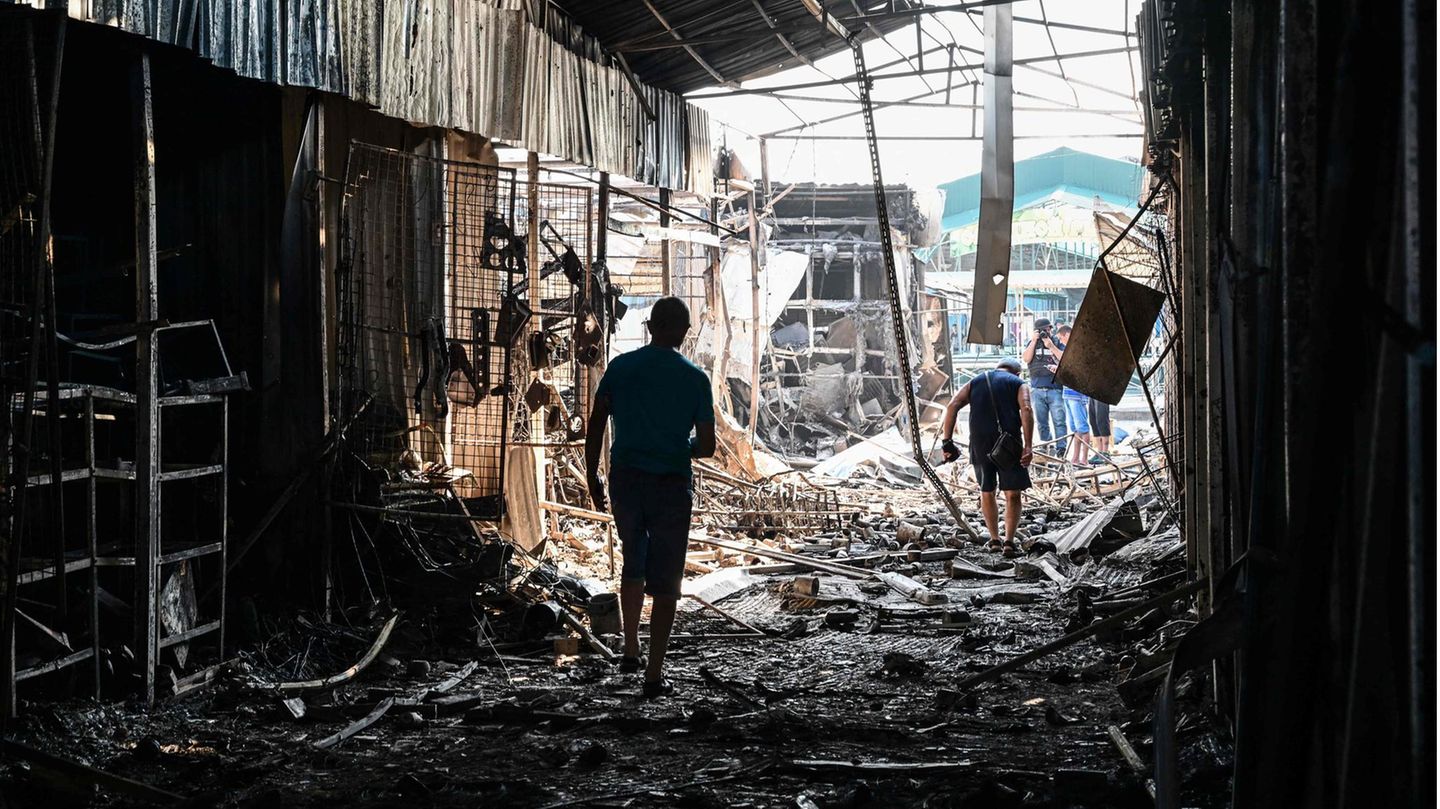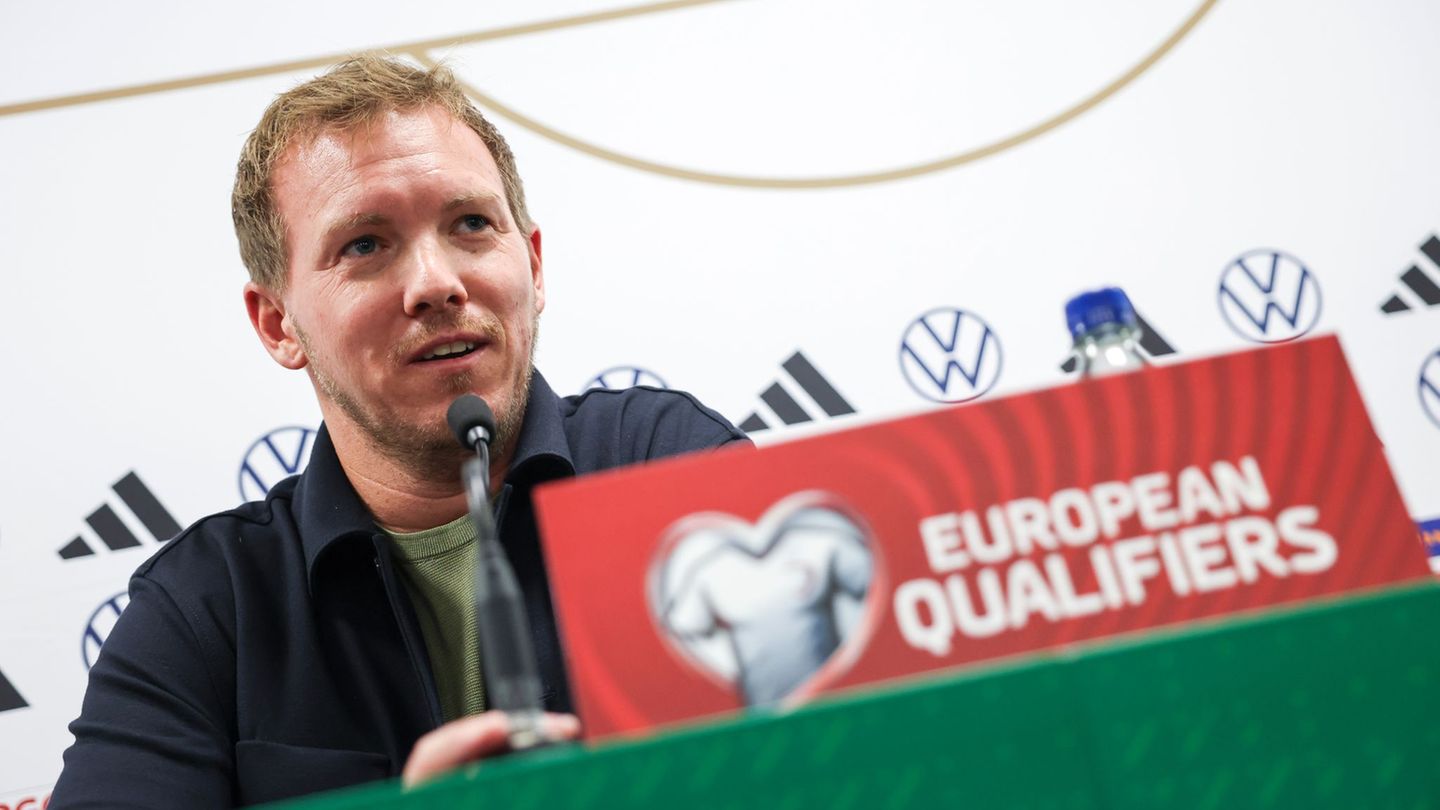The war-ravaged Ukraine is to be rebuilt. The Russian campaign could last months or years. It’s about more than house walls anyway.
Is the question too early? No, everyone agrees. But it won’t be quick, and that much is certain.
Ukraine is to be rebuilt, democratically, green and digitally governed. This is the project and promise formulated by around 40 countries after a two-day reconstruction conference in Switzerland. It won’t be the last.
The war-ravaged country has been under the impact of a brutal attack by Russia for 133 days, which has no foreseeable end yet, but countless images of devastation. Also on Monday and Tuesday, when the international community is meeting in Lugano, Ukraine is being hit by Russian missiles and bitter fighting is taking place, especially in the east of the country.
“Every day that Russia continues its abominable war against Ukraine is one day too many,” agrees German Development Minister Svenja Schulze (SPD), who is taking part in the conference as the German representative and who once again underlined the magnitude of the destruction . How long will the reconstruction take? “This is not a project for a year or two,” she says.
Germany wants to host the next reconstruction conference in 2024. A conference organized by the EU is to take place later this year, and Great Britain wants to be the host in 2023. That’s the time horizon, for now. Ukraine will need any help, billions of dollars will be needed.
Seven principles for the reconstruction of Ukraine
In the areas from which Russian troops have been driven out alone, there are tens of thousands of destroyed houses, said Ukrainian President Volodymyr Zelenskyy in his daily video address on Monday evening. Especially since Ukraine has to prepare for the winter, among other things to secure the energy supply. Large parts of the economy were paralyzed by the war, thousands of companies are at a standstill.
But Selenskyj wants more than just putting up walls that have been destroyed, as he says: “Ukraine must become the freest, most modern and safest country in Europe.” Very ambitious goals that sometimes illustrate the need for reform. The foundation for this was laid in Lugano.
Specifically, the government from Kyiv and representatives of donor countries, international organizations and financial institutions have agreed on seven basic principles, set out in the “Lugano Declaration”. It’s about:
- the commitment to a democratic process in which all of society participates
- the involvement of private companies
- a green transformation towards a CO2-free society
- a digitized administration
- Development projects free from nepotism and enrichment
- a transparent reconstruction process
- and a systematic strengthening of the rule of law
“Fighting corruption is a very important issue,” said Development Minister Schulze. Probably also so that the money goes where it is supposed to go, or even gets there in the first place. Despite major reform efforts, Ukraine was ranked 122 out of 180 in Transparency International’s corruption index before the war.
The Ukrainian government has already set up digital platforms for government services that are intended to make corruption impossible, says Prime Minister Denys Schmyhal. This expansion should continue. President Selenskyj promises “maximum transparency” in all projects.
Teaser picture: Picture Alliance/Sven Simon
Two developments make Markus Berndt, at the European Investment Bank (EIB) responsible for activities with Ukraine, among other things, optimistic about the project: “On the one hand, the relationship between the Ukrainians and the government and authorities has improved as a result of the war. They know what they are have in government structures and what they pay taxes for,” he says to the German Press Agency. “On the other hand, the prospect of joining the EU provides a clear framework for implementing reforms.”
The reconstruction plans are to a certain extent about principle, on the one hand, but also about perspective, on the other. The obligation to provide long-term support for Ukraine is already being deliberately made “in times of war”, explains the host Swiss President, Iganzio Cassis. “This should give the people of Ukraine hope and the certainty that they are not alone.”
The 40 or so signatory states have made a general commitment to “support Ukraine on its way from short-term to long-term recovery.” Kyiv must have the process sovereignty. In addition, the “Lugano Declaration” expressly refers to the country’s “European perspective and EU candidate status” and emphasizes the need for reforms. In this respect, the Lugano reconstruction plans should also be a sure signpost to the demanding EU community of states ().
Winter is coming
The bottom line is that Ukrainian Prime Minister Schmyhal hopes that “everything that was destroyed will be made better than it was.” And estimates the cost of reconstruction at at least 750 billion dollars (almost 720 billion euros).
Admittedly, a considerable sum – and perhaps not enough, believes the renowned military expert Carlo Masala. He shows up in the current star– “Ukraine – the situation” not very optimistic that the estimated funds are sufficient – and can actually be raised by the western partners ().
So the aggressor should also pay for the war damage: 300 to 500 billion dollars in Russian assets that are frozen worldwide should be used, demands Prime Minister Schmyhal, who also wants the proposal to be understood as a message. “Russia and other possible aggressors must be aware that they have to pay for baseless and unjustified attacks,” he says.
The most urgent task now, however, is to prepare for the winter, says Development Minister Schulze. “It must be possible for people to have warm homes by winter, not just a roof over their heads,” says Schulze. “The heating season starts in September or October and it will be a huge effort to do that in such a short time.”
Even if the war may drag on for months or years, there is no time to lose in the rapid reconstruction of Ukraine. Otherwise, the economy could collapse and the infrastructure collapse completely.
Is the question of Ukraine’s reconstruction too early? Not in Lugano.
Source: Stern
David William is a talented author who has made a name for himself in the world of writing. He is a professional author who writes on a wide range of topics, from general interest to opinion news. David is currently working as a writer at 24 hours worlds where he brings his unique perspective and in-depth research to his articles, making them both informative and engaging.




